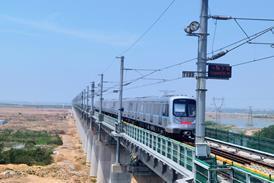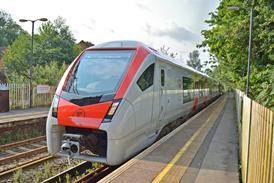MAKING his first public speech as Rail Regulator at the Railway Forum on July 9, Tom Winsor described Britain’s railway industry as ’emerging from a period of regulatory uncertainty while the [new Labour] government has been completing its spring clean, and preparing to publish the SRA Bill’ (p484). His speech was tough, uncompromising and explicit. His principal theme was that railway companies, and especially Railtrack, had ’important responsibilities not only to shareholders but also to dependent users and to the public interest.’
’Under its network licence, Railtrack is to maintain, renew, replace, improve, enhance and develop its network’, he said. These things must be done ’in a timely, economic and efficient manner’ to satisfy train operators and the taxpayer, who is putting money into the industry ’to a very large extent’.
Winsor stressed that these investment expectations ’are not matters of discretion, they are matters of obligation. These are not voluntary commitments which can be disregarded at will. They are obligations which are enforceable in the public interest by the Regulator. It’s not so much to ask, is it, that companies with obligations honour them? The public takes these obligations seriously, and I take them seriously. And I am not meekly asking - I am demanding. That is my job and I am going to do it.’
Winsor followed up his words with action three days later, writing to Railtrack Chief Executive Gerald Corbett for ’clarification’ of the company’s position on freight investment. Accompanied by a withering analysis of references to the 1999 Network Management Statement, the letter demands a detailed explanation by August 13 of the ’analysis and process’ which led Railtrack to conclude that it can accommodate forecast freight demand, and ’the process by which Railtrack has sought to agree that this is a robust conclusion with freight operators’.
Winsor also wants details of capacity assessment for the 38 of 45 routes identified by Railtrack as adequate to carry forecast volumes of freight, and improvement plans for the other seven. Railtrack is asked to confirm ORR’s ’understanding’ that no independent assessment of freight demand forecasts has been carried out. Loading gauge enhancement receives particular scrutiny, including demands to know why there were no references to ’piggyback gauge’ in Railtrack’s current strategy and ’what is the full extent of Railtrack’s current certain knowledge of the gauging capability of its network?’
- Deputy Prime Minister John Prescott announced on July 20 that MkI rolling stock with slam doors must all be withdrawn by the end of 2004. Most of the 1950 MkI vehicles still in use are operated by Connex South Eastern, Connex South Central and South West Trains. New regulations being laid before Parliament from the Health & Safety Commission will also require the installation of TPWS at approximately 10 000 signals around the British network by the end of 2003.




















